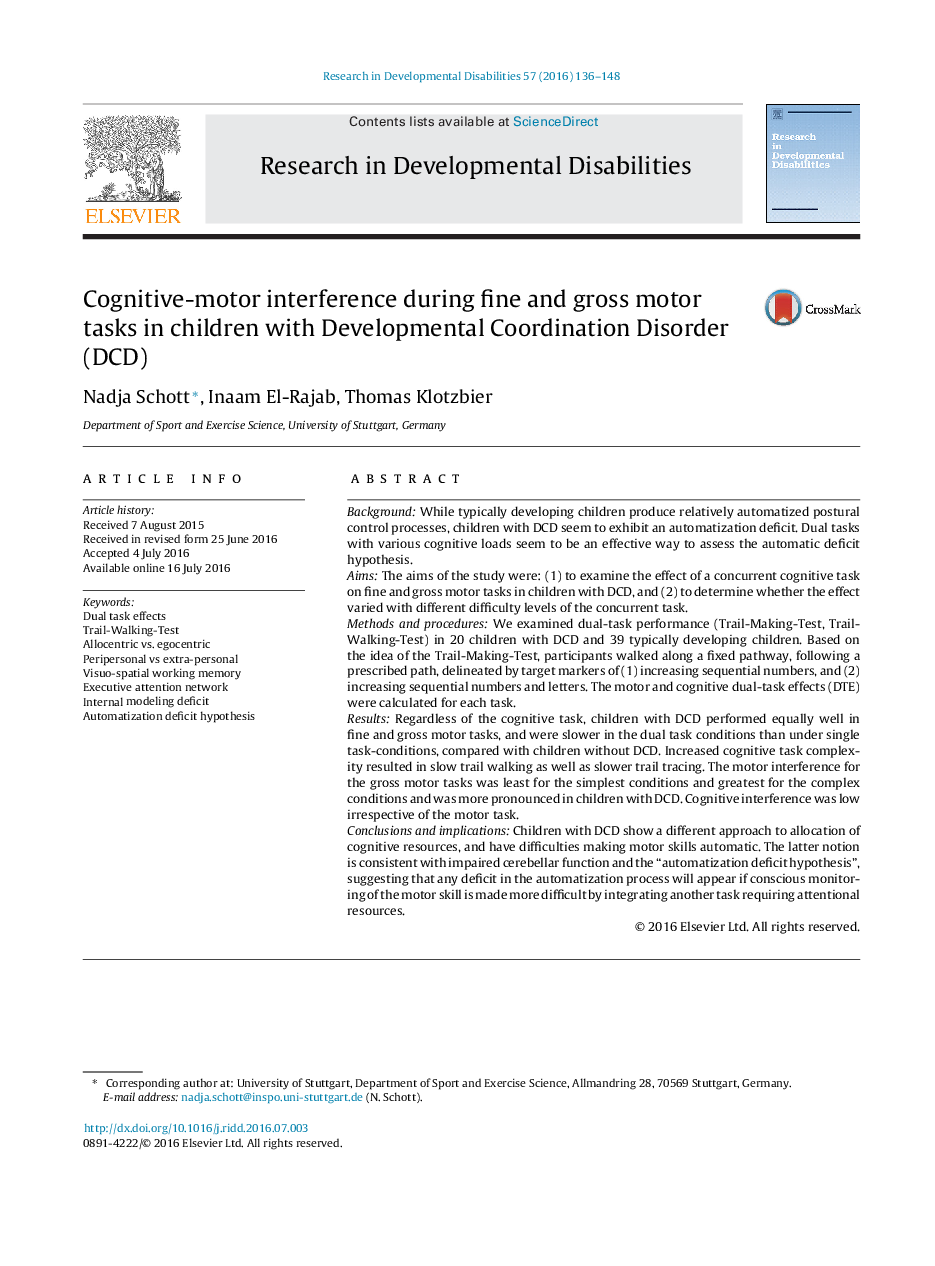| کد مقاله | کد نشریه | سال انتشار | مقاله انگلیسی | نسخه تمام متن |
|---|---|---|---|---|
| 371011 | 621893 | 2016 | 13 صفحه PDF | دانلود رایگان |
• Cognitive-motor interference was examined in children with DCD using the Trail-Making-Test and the Trail-Walking-Test.
• Children with DCD were significantly slower in all three conditions of the TMT and the TWT compared to controls.
• Dual-task effects in motor speed vary, dependent on the complexity of the cognitive task.
• Executive control deficits extend to the visuomotor domain using DT paradigms for large-, but not small-scale tasks.
• The Automatization Deficit Hypothesis may be a useful model if monitoring of the motor skill is difficult by an additional task.
BackgroundWhile typically developing children produce relatively automatized postural control processes, children with DCD seem to exhibit an automatization deficit. Dual tasks with various cognitive loads seem to be an effective way to assess the automatic deficit hypothesis.AimsThe aims of the study were: (1) to examine the effect of a concurrent cognitive task on fine and gross motor tasks in children with DCD, and (2) to determine whether the effect varied with different difficulty levels of the concurrent task.Methods and proceduresWe examined dual-task performance (Trail-Making-Test, Trail-Walking-Test) in 20 children with DCD and 39 typically developing children. Based on the idea of the Trail-Making-Test, participants walked along a fixed pathway, following a prescribed path, delineated by target markers of (1) increasing sequential numbers, and (2) increasing sequential numbers and letters. The motor and cognitive dual-task effects (DTE) were calculated for each task.ResultsRegardless of the cognitive task, children with DCD performed equally well in fine and gross motor tasks, and were slower in the dual task conditions than under single task-conditions, compared with children without DCD. Increased cognitive task complexity resulted in slow trail walking as well as slower trail tracing. The motor interference for the gross motor tasks was least for the simplest conditions and greatest for the complex conditions and was more pronounced in children with DCD. Cognitive interference was low irrespective of the motor task.Conclusions and implicationsChildren with DCD show a different approach to allocation of cognitive resources, and have difficulties making motor skills automatic. The latter notion is consistent with impaired cerebellar function and the “automatization deficit hypothesis”, suggesting that any deficit in the automatization process will appear if conscious monitoring of the motor skill is made more difficult by integrating another task requiring attentional resources.
Journal: Research in Developmental Disabilities - Volume 57, October 2016, Pages 136–148
